From tracking the pre- and post-independence journey of storied Indian brands to
Read more about the use of AI in a human context and the future of clean energy


1) Sailing the winds of change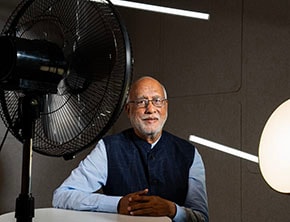
Forbes India"s latest issue is dedicated to the organisations established before the country"s independence that then transitioned to support nation-building. Today"s newsletter features some exciting stories from the Independence Day Special. The first one is Bajaj Electricals. It started as Radio Lamp Works in 1938 to distribute Italian-made radio lamps. In 2024, it is now one of the top consumer electronics companies in various segments, such as mixer grinders, water heaters, dry irons, fans, and lighting. Here"s a chronicle of the company, which is run by a robust and well-defined strategic leadership and not by any single individual.
2) Creating for aspiring Indian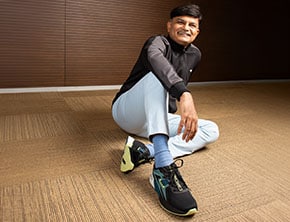
In his "Letter from the Editor," Brian Carvalho wrote, "If somebody tries to tell you that India began shining as an attractive market for foreign companies only in the past few decades, take them back almost a century ago—to 1931. That’s when Bata Shoe Company, a footwear brand born in Austria-Hungary (today, the Czech Republic) in 1894, was incorporated in India. British India was an attractive prospect: Of a population of 350 million, only an estimated 10 million had access to footwear. Clearly, footwear had to be made accessible and affordable, and Bata seized the opportunity." Since then, the footwear brand has kept up with the journey and aspirations of India"s people. Here"s the riveting story of its evolution well into the e-commerce era.
3) Staying afloat a century and a half later
Following along the theme of recounting the tales of storied brands that began their journey pre-Independence and are still growing strong in newer businesses of modern times, it is now turn to look at 146-year-old consumer electrical company Crompton. Colonel REB Crompton established the company in 1878. Karamchand Thapar of the Thapar Group—known for acquiring businesses the British couldn’t sustain during World War II—took over Crompton in 1947. The family-owned business quickly put India on the global stage by making multiple acquisitions and quick expansion. Here"s a clinical analysis of the company"s journey, which professionals are now running.
1) SBI: Maintaining relevance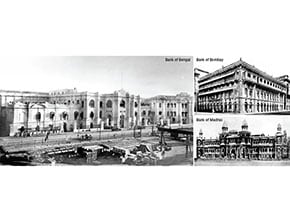
Any book on the significance of Indian banking is incomplete without a few chapters dedicated to the work of the State Bank of India. SBI is legendary when it comes to its contribution to the economy. It has also been a significant part of India"s history since its inception in 1806 as the Imperial Bank of India. There have been very few witnesses to India"s evolution before independence that still stand tall, and SBI is one of them. But don"t assume that a behemoth like SBI is weighty and slow to adapt. Despite being the "largest" and "oldest" bank, SBI has maintained its dominance in the era of fintech and innovative lending. Here"s an overview of the bank"s spectacular journey.
2) Humans before AI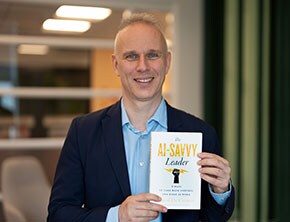
In this newsletter, we have repeatedly reiterated that the world has gone beyond ignoring Artificial Intelligence (AI). It is on the verge of becoming omnipresent. And this speedy advancement has fueled debate over AI"s impact on human lives. David De Cremer, the Dunton Family Dean of the D"Amore-McKim School of Business and professor of management and technology at Northeastern University, makes a case for why business leaders need to create value by using AI in human-centred and responsible ways. The author of"¯Leadership by Algorithm: Who Leads and Who Follows in the AI Era? also explains why leaders must steer AI-driven transformation instead of delegating it to tech experts.
3) New clean energy opportunities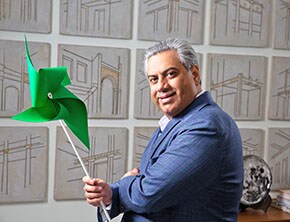
In the latest Forbes India Tech Conversations podcast episode, Rahul Munjal, chairman and managing director of Hero Future Energies, gives a quick update on the company"s projects, including a soon-to-be-commissioned green hydrogen technology demonstrator pilot plant. Munjal also talks about his vision for the company in the context of India"s net-zero targets. Today, Hero Future Energies has about 1.9GW of capacity, and he expects that to reach close to 5GW over the next two to three years. He also talks about opportunities overseas in markets including Vietnam and Britain. Listen here.
4) Now a pickleball league
Purists who love tennis, table tennis, and badminton have a newly-found disdain towards a new racquet sport that is gaining popularity among people aged eight to 80. Despite that, pickleball is climbing on the popularity charts. Legends such as Bill Gates, Andre Agassi, Formula 1 racers, celebrities, and film stars have already fallen for this sport and are using it as a recreational activity or fitness one. Tennis ace-turned-entrepreneur Gaurav Natekar is launching the World Pickleball League and has already roped in stars such as Samantha Ruth Prabhu to own franchises. What"s the plan for the six-franchise tournament scheduled for early 2025? Find out in the new episode of the Sports UnLtd podcast.
First Published: Aug 24, 2024, 10:00
Subscribe Now